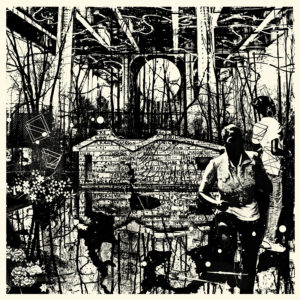 I didn’t know I was black until I was 9 years old, when my father called the beggar at the stoplight a nigger.
I didn’t know I was black until I was 9 years old, when my father called the beggar at the stoplight a nigger.
The beggar, a teenage boy in torn clothes, had poked his hand through the driver-side window, palm up—Spare some change, no, sir—daggering my father’s personal space. My father kissed his teeth and stomped on the gas pedal. The car clipped the boy’s hand.
I swung around to peer at the boy through the back window. He had molasses skin and coarse hair, just like I did. Sure, he was barefoot and had smelled of sewage, but he was a nigger, and I was… not?
I filed that moment away, under Daddy’s Cantankerous Outbursts, only to have it dredged up in high school by the boys who scrubbed their faces with bar soap at the washroom sinks. They did this to “even out” their skin tone. If successful, they would call themselves “brown,” and girls would finally return their catcalls. Supposedly.
One of my classmates scoffed at the sight and advised me that you had to take bleaching pills to truly even out your complexion. Otherwise, you’d have a white face and a black body. He nudged me in the ribs and said he knew where to get them at a discount.
We were desperate to not be black, or at least to be black and something else. We scrutinized our features: hair texture, iris color, skin tone, fingernail shape, size, and tint. All could provide evidence of some other ancestry. Black and ________. We upheld the nation’s motto—Out of many, One people—as proof of our mixed roots.
Because in Jamaica, black did not mean beautiful or powerful. Black was Downtown Kingston. Black was riding a JUTC bus. Black was patois or “broken” English. Black was uncivilized.
I thanked God I lived Uptown and had coolie hair. I told my friends my great-grandfather was Guyanese, and avoided the sun, thinking I’d get lighter.
And I did—when I moved to Long Island for college.
In an effort to not disappoint the other 7% of black people at my school, I compelled myself to assimilate. I erased my accent. I browsed hazel contacts on Amazon. I kept my hair cropped, dark Caesar cut, and shopped at Abercrombie & Fitch. I didn’t swallow a pill, but I did another kind of bleaching that burned just the same.
When I dabbled in online dating, several white guys denied me at the door. Not really into dark skin. White guys only. I like light-skinned hotties. Even men who didn’t advertise their racial preferences ignored me. It’s very likely I wasn’t a hottie, or that they weren’t into books and photography like I was. I was not a match for 80% of the guys online, and I looked at my fingers on the keyboard and knew why.
I dated others of course: An African-American guy from Atlanta, a Chinese guy from Shenzhen, a Spanish guy from Sevilla. But a tumor had formed in my chest, and it whispered: You’re not good enough.
I believed it.
The tumor pulsed when a black security guard shouted Good luck as I walked to my first serious job interview. It throbbed when my future boss told me then and there that she hadn’t had much luck with people like me. It ballooned out and almost choked me when I glimpsed one of my students’ notes to a classmate: Mr. Donaldson is a nigger.
I didn’t say anything, and I don’t think the kid knew that I saw. I slinked to my desk and tried to forget. I told myself there were so many other wonderful children in the class. I recalled example after example of laughter and silliness—years’ worth of memories. But I couldn’t forget.
Embarrassed, I even hid the incident from my husband, who is white. We had already spent years discussing things such as how people in his hometown stared at me in public, or the adoption decisions we would have to make, or why my hair and skin dried out faster than his. With him, I had to confront race in a way I never expected, and for all his patience and love, I was exhausted. I hope he understands that.
I still haven’t conquered race or my own insecurities. I don’t know when I will. That old tumor still aches every now and then, but rather than ignore it, I’ve finally decided to saw it away.
__
Bradley Donaldson is a writer and teacher. He grew up in Kingston, Jamaica, but now lives in the New York City area where he teaches English. He is currently working on a novel.
Artwork by Damon Locks

3 comments
Nicole Moliere says:
Sep 13, 2016
“With him, I had to confront race in a way I never expected, and for all his patience and love, I was exhausted. I hope he understands that.” This. This. This. Outstanding piece. Thank you.
Lynn Sunday says:
Sep 16, 2016
Lynn Sunday says: Excellent essay. Great last line.
NL says:
Mar 1, 2017
Thanks for writing this amazing piece and for sharing it.